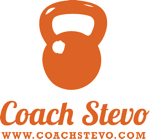What is more cozy and compelling than the thought of a warm bed? On some mornings throwing off the covers can seem like the hardest thing in the world. But you know what is harder?
Starting any new habit at the end of a day.
The researchers at the Baumeister-Tice labs at the University of Florida have spent the last 2 decades researching a phenomenon they refer to as, “Ego-Depletion.” That’s a fancy psychology term for what we might call, “that sense of exhaustion you feel after spending day after day just trying to get stuff done.”
According to their research, making decisions and resisting our impulses has a cost. The longer we spend each day resisting cake, the harder it gets to resist cake. The more time we spend trying to get stuff done, the harder it gets at the end of the day to get anything done. Willpower is a limited resource. And according to their research, nothing replenishes it more than a good night of sleep.
Mornings have other great stuff going for them, too. Most of us already have a morning routine. I let my dogs outside and make coffee every day. In the same order. At the same time. Almost without thinking about it, which is the very definition of a habit. And piggybacking off of existing habits is way easier than trying to carve out new habits from scratch.
The biggest push-back I get when I tell clients that it’s easier to start new habits in the morning is, “but I don’t have enough time!” Which is a lot like saying that the reason you can’t run a marathon is that you haven’t run 26.2 miles before. That’s what the training is for! Here’s my plan to help you start any new habit in the morning (modified from BJ Fogg’s TinyHabits):
Coach Stevo’s Morning Habit Training Plan
1. Pick ONE Habit, just one, that you can do in two minutes or less.Everyone has two minutes and if you don’t you have bigger problems than I can fix in a blog post.
2. Show your commitment with a trip to the store and get everything you need to do your habit for 2 weeks.Buy enough floss. Get enough fruit to make smoothies. Buy the tupperware. The last thing you want to do is get 7 days under your belt, then run out.
3. Do all the prep so you can get your entire habit done in less than 120 seconds.When a race car comes into the pits, the pit crew doesn’t run around looking for where they put the fresh set of times. Chop the fruit, crack the eggs, put the floss on your counter, or clear the spot where you intend to do the push ups.
4. Piggyback it.Pick the event that you already do every morning that you are going to do this habit after. It should be the same every morning.
5. Put it in the way.If you’re going to floss after you brush your teeth, put your floss in the way. If you’re going to make a smoothie after your coffee, put your blender in front of your coffee machine.
6. Tell everyone you feel comfortable telling that you’re going to do this habit every day.Accountability here is key.
7. Do it every day.
8. Tell yourself you’re awesome.Give yourself a high-five. Do a little dance. Anything that puts a smile on your face.
9. Keep a visual record.Write a hash mark on the mirror or your fridge. My friend Seth Munsey gives clients pitch counters so they can see the numbers add up and it’s been wildly successful at his gym in Monterey, CA.
从经验来说,这可能会工作well you’ll want to add to it after a few days. DON’T! Resist that urge until you’ve done the full two weeks and reassess. It’s easy to get carried away in the rush of new habit mojo and take a perfectly reasonable habit all the way to unsustainable in a heartbeat. Keep your head down and make it the two weeks. Then we can talk about setting that alarm clock a little earlier.


